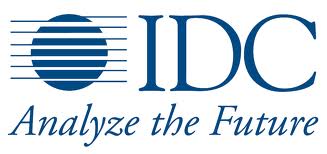 Manila, May 22, 2015 – To provide enterprises a venue to explore the possibilities of building a mobile-first enterprise, IDC Asia/Pacific (AP) recently hosted the first Enterprise Mobility Conference at the New World Makati Hotel. The event brought together the industries’ best solution providers and senior IT executives to create a platform to share the latest mobility developments and how to develop a meaningful, comprehensive mobility strategy that is secure and optimizes the business and its customers.
Manila, May 22, 2015 – To provide enterprises a venue to explore the possibilities of building a mobile-first enterprise, IDC Asia/Pacific (AP) recently hosted the first Enterprise Mobility Conference at the New World Makati Hotel. The event brought together the industries’ best solution providers and senior IT executives to create a platform to share the latest mobility developments and how to develop a meaningful, comprehensive mobility strategy that is secure and optimizes the business and its customers.
“With the Philippines being dubbed as the “selfiest” country and Makati as the selfie capital of the world — combined with the continuous growth of smartphones and tablets — the country is a strong hotbed for anything mobile. The rise of mobility among consumers is also being translated into the enterprise arena, converging personal and professional lives on mobile devices,” said Jubert Alberto, country lead, IDC Philippines. “We at IDC believe that mobility is the platform in which companies can continuously deliver innovations that differentiate themselves in this highly competitive, hyperconnected world,” adds Alberto.
The consumer-driven mobile movement is the catalyst of transforming a traditional desktop centric enterprise to a highly agile, mobile-first organization. A mobile-first enterprise can expect tangible improvements in the way it interacts with their employees, customers, and partners by raising employee productivity, improving customer relationships and satisfaction, as well as streamlining business processes and operations.
“Mobility is fast becoming the engine to drive business growth within enterprises of all sizes. Yet, effective utilization of enterprise mobility solutions are still beyond many organizations in the AP region,” said Ian Song, research manager for mobility, IDC Asia/Pacific.
In the Philippines, mobile device strategies differ by company. According to the 2015 IDC Asia/Pacific (Excluding Japan) Enterprise Mobility Survey, 25% of surveyed organizations support a mix of corporate-issued and bring your own devices (BYOD). Moreover, Philippine enterprises are also taking a serious approach to enterprise mobility management (EMM), in which 38% of organizations have standardized the management of all devices accessing the company data or IP.
However, IDC sees some challenges inhibiting mobile adoption that impact IT decision makers and service providers alike, including lack of internal skills; lack of applicable use cases; security concerns; lack of compliance; and lack of budget, return on investment (ROI), and understanding of total cost of ownership (TCO).
Song also discussed the top mobile initiatives of enterprises in the next 12–24 months. He mentioned the deployment of iOS or Android tablets as the top factor among the respondents, followed by EMM solutions deployment, launch of mobile business apps, increase of company-issued smartphones, and Windows tablets deployment.
Meanwhile, IDC Philippines client devices lead Jerome Dominguez shared some insights on the booming smartphone market in the country, stating that the Philippines ranked third when it comes to market size, which is fueled by budget offerings from local vendors that make smartphones more palatable to budget-conscious Filipino consumers.
“We maintain a very bullish outlook for smartphones as the prices continue to go down and more people switch from feature phones to smartphones,” said Dominguez. Given this smartphone boom, we can expect the BYOD trend to further take off this year. For 2015, IDC expects almost 2 million Filipinos to bring their smart devices to their offices.
In terms of usage, 80% of employees use smartphones in their offices. Results also showed that 70% are connected to office WiFi regardless of company policies, and 60% use their phones for more than a half of work hours.
“While security is the major concern for IT, survey results showed that 71% of users are most concerned about privacy and getting caught. Although most of them use their smartphones in the office, they only use the device for doing personal tasks, such as social networking and personal messaging. Only 17% use phones to access productivity tools,” according to Alon Anthony Rejano, IT services lead, IDC Philippines.
As enterprises become more customer-centric because of the digital transformation, end users tend to demand a more personalized experience, hence customer engagement has to be improved. With this, IDC sees that more organizations will implement mobility-specific processes for internal business operations and develop a more robust mobile strategy.
About IDC
IDC is the premier global provider of market intelligence, advisory services, and events for the information technology, telecommunications, and consumer technology markets. IDC helps IT professionals, business executives, and the investment community make fact-based decisions on technology purchases and business strategy. More than 1,000 IDC analysts provide global, regional, and local expertise on technology and industry opportunities and trends in over 110 countries. For more than 50 years, IDC has provided strategic insights to help our clients achieve their key business objectives. IDC is a subsidiary of IDG, the world’s leading technology media, research, and events company. You can learn more about IDC by visiting www.idc.com.
